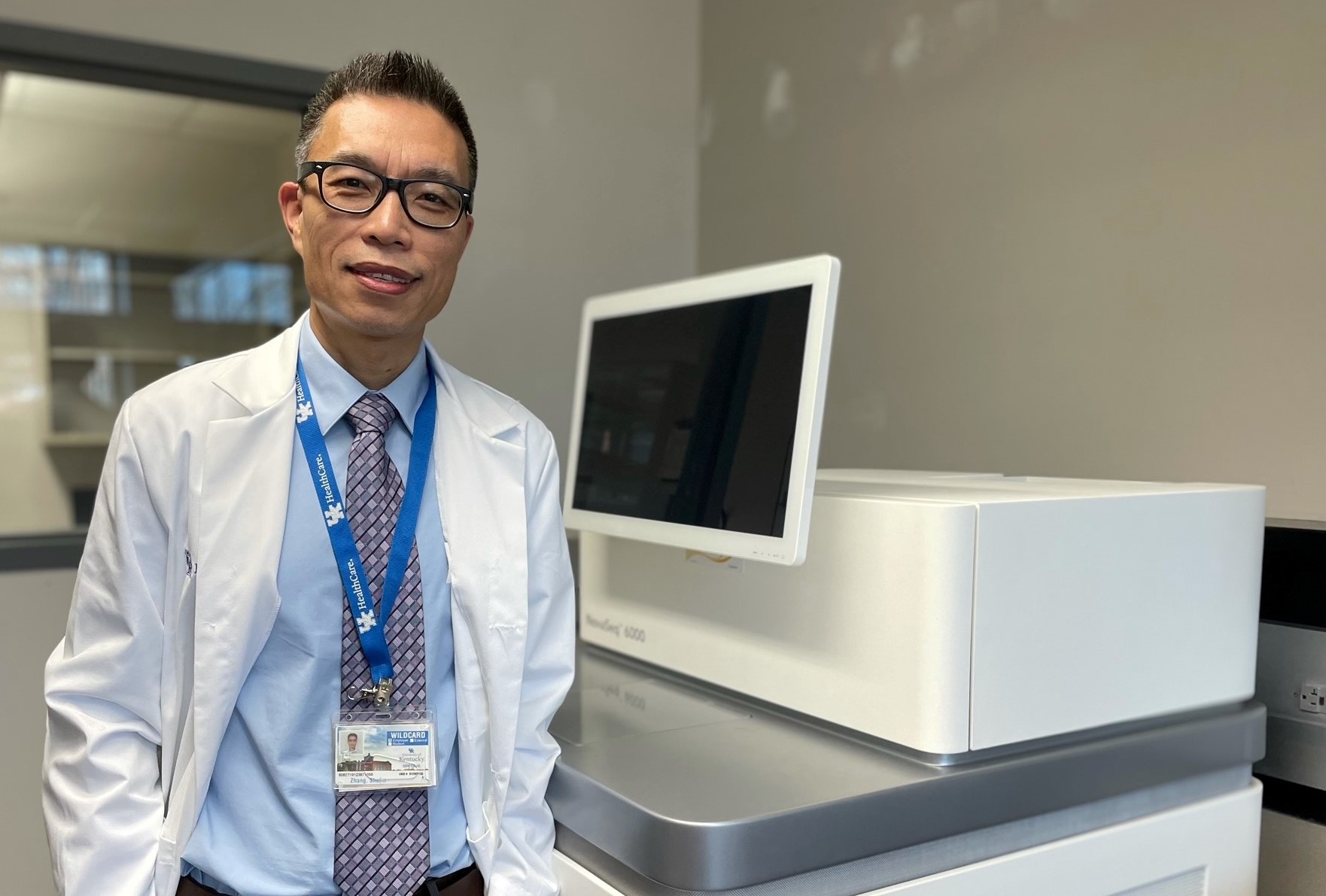UK’s ‘World Class Sequencing Center’ Benefits Kentucky Research, Clinical Diagnoses
Shulin Zhang, MD, PhD, professor of pathology and laboratory medicine, began his career as a clinical molecular geneticist when the famous Human Genome Project was in its final stages. A 23-year international research effort, the project was revolutionary as it determined the full DNA sequence of the human genome.
In the subsequent two decades, genomics has become a very wide-ranging field, and the technology has advanced even further to utilize DNA sequencing for diagnosing genetic conditions and cancer genetic profiles. These recent advancements benefit the health of Kentuckians and expand the educational opportunities for future physicians and scientists.
Nearly 20 years into his professional career, Dr. Zhang plays a major role in genomics as director of the UK Genomics Core Laboratory. Through various sequencing capabilities such as exome, genome, transcriptome, and single-cell sequencing, the lab builds upon the advancements in clinical genomics, precision medicine, and genomic research interests at UK.
“Once you have the sequencing technology that can be widely used, the next question is, how do we make a more definitive genomic diagnosis?” Dr. Zhang said. “And furthermore, how do all these levels of diagnoses and knowledge apply to the clinical management, which is essentially the birth of precision medicine?”
Dr. Zhang’s laboratory is certified by the Clinical Laboratory Improvement Amendments (CLIA) and College of American Pathologists (CAP). The clinical laboratory encompasses more than 9,000 square feet. The lab is also the oncogenomic shared resource facility of the Markey Cancer Center, Kentucky’s only National Cancer Institute-designated center.
Dr. Zhang and his team test mostly inherited genetic disorders and cancers. This testing is highly relevant, particularly in the state of Kentucky which ranks highly among other states in the incidence of many types of cancer and cancer-related deaths.
Dr. Zhang said there is a special form of cancer that arises in the setting of inherited cancer syndromes, in which gene mutations are inherited from parents. Testing underlying gene mutations not only helps doctors manage patients’ current cancer, but also provides patients with the option of screening for other cancers, allowing earlier treatment. The lab is collaborating with John A. D’Orazio, MD, chief of pediatric oncology, and Amanda M. Harrington, MD, pediatric oncologist at Kentucky Children’s Hospital, to test pediatric cancer patients for inherited cancer predispositions.
Trainees benefit as genomics expands clinically and scientifically. Dr. Zhang said that the residents in the pathology and laboratory medicine program complete their genomics training in the lab. The facility also provides educational experience for graduate students in the College of Medicine Master of Forensic Toxicology and Analytical Genetics program.
With the support from UK HealthCare, the College of Medicine, and Markey Cancer Center, the team recently has been able to purchase additional high-throughput sequencers including two NextSeq 2000 machines and one NovaSeq 6000. In addition to their unparalleled sequencing capacity, these instruments also significantly accelerate the testing process. These platforms make the UK Genomics Core Laboratory a “world-class sequencing center,” according to Dr. Zhang.
Tremendous progress has occurred in the field of genomics since the Human Genome Project was completed. The state-of-the-art platforms in the genomics laboratory will greatly facilitate the patient care, precision medicine initiative, and genomic research at University of Kentucky.
